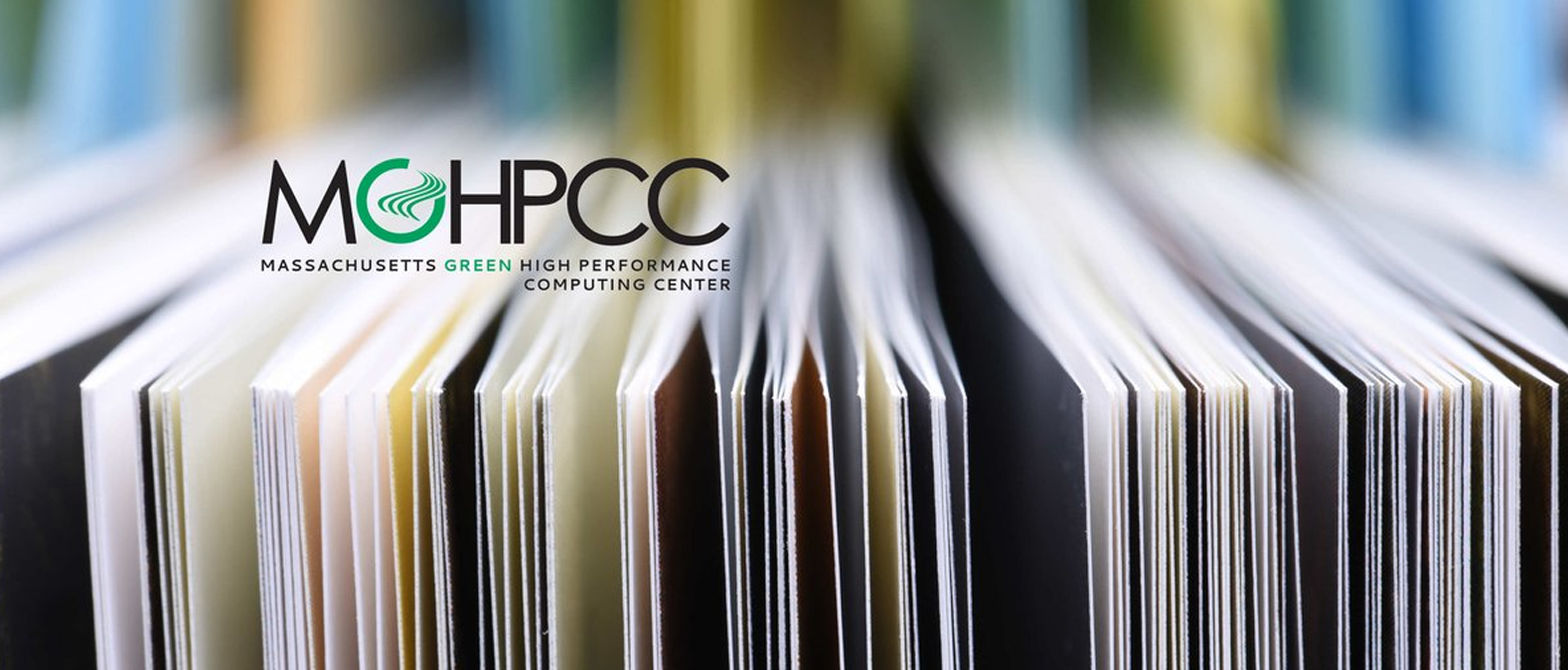
Characterizing Simulated Traffic Management? Observability of Galaxy Merger Signatures? Humanitarian Assistance and Disaster Relief Modeling? This month's selection of publications featuring research using the MGHPCC.
Biswas, Niloy (2022), Contributions to Scalable Bayesian Computation, https://dash.harvard.edu/handle/1/37372040
Cone, Cooper E (2022), Evaluating Alternative Solutions for Aircraft Collision Avoidance, Tufts University Masters Thesis, https://www.proquest.com/openview/bb37c6262ed6a1f503cf250cf73216b2/1?pq-origsite=gscholar&cbl=18750&diss=y
Aurelien Dersy et al (2022), Simplifying Polylogarithms with Machine Learning, arXiv: 2206.04115 [cs.LG]
Sen Gao et al (2022), Catalyst-free synthesis of sub-5 nm silicon nanowire arrays with massive lattice contraction and wide bandgap, Nature Communications, doi: 10.1038/s41467-022-31174-x
James C. Jones, Zachary Ellenbogen and Yan Glina (2022), Characterizing Simulated Traffic Management Initiatives with Unsupervised Learning, AIAA AVIATION 2022 Forum June 27-July 1, 2022 Chicago, IL & Virtual, doi: 10.2514/6.2022-4025
Boris Kozinsky et al (2022), Uncertainty-aware molecular dynamics from Bayesian active learning: Phase Transformations and Thermal Transport in SiC, Research Square, doi: 10.21203/rs.3.rs-1606203/v1
Peggy Lai et al (2022), Metagenomic assessment of gut microbial communities and risk of severe COVID-19, Research Square, doi: 10.21203/rs.3.rs-1717624/v1
D, Kirk Lewis et al (2022), Electronic Structure of de Novo Peptide ACC-Hex from First Principles, J. Phys. Chem. B, doi: 10.1021/acs.jpcb.2c02346
Mazeau, Emily J. (2022), Ongoing Developments in Automatic Generation of Microkinetic Models for Heterogeneous Catalysis Using RMG, Doctoral Dissertation Northeastern University, https://www.proquest.com/openview/f569ecdcf45815d2f759e14206eb2517/1?pq-origsite=gscholar&cbl=18750&diss=y
Rahul Mazumder et al (2022), Quant-BnB: A Scalable Branch-and-Bound Method for Optimal Decision Trees with Continuous Features, arXiv: 2206.11844 [cs.LG]
Rebecca McElroy et al (2022), The observability of galaxy merger signatures in nearby gas-rich spirals, arXiv:2206.07545 [astro-ph.GA]
Schuldt, Dieter Wolfgang (2022), Application of Agent-Based Modeling to Problems in Humanitarian Assistance and Disaster Relief, Doctoral Dissertation Tufts University, https://www.proquest.com/openview/3e20bbf9097f4fbaae508a14e3fd1834/1?pq-origsite=gscholar&cbl=18750&diss=y
Daniel Schwalbe-Koda et al (2022), Repurposing Templates for Zeolite Synthesis from Simulations and Data Mining, Chem. Mater., doi: 10.1021/acs.chemmater.2c00064
Kevin A. Spiekermann, Lagnajit Pattanaik, and William H. Green (2022), Fast Predictions of Reaction Barrier Heights: Toward Coupled-Cluster Accuracy, J. Phys. Chem. A, doi: 10.1021/acs.jpca.2c02614
Mingyu Wan et al (2022), Deep Learning-Assisted Investigation of Electric Field–Dipole Effects on Catalytic Ammonia Synthesis, JACS Au, doi: jacsau.2c00003
Emily Williams and Adrian Lozano-Duran (2022), Information-Theoretic Approach for Subgrid-Scale Modeling for High-Speed Compressible Wall Turbulence, AIAA AVIATION 2022 Forum June 27-July 1, 2022 Chicago, IL & Virtual, doi: 10.2514/6.2022-3326
Yuchen Yuan, Jiahua Deng, and Qiang Cui (2022), Molecular Dynamics Simulations Establish the Molecular Basis for the Broad Allostery Hotspot Distributions in the Tetracycline Repressor, J. Am. Chem. Soc., doi: 10.1021/jacs.2c03275
Ali R. Zomorrodi et al (2022), Computational design and engineering of an Escherichia coli strain producing the nonstandard amino acid para-aminophenylalanine, iScience, doi: 10.1016/j.isci.2022.104562
Do you have news about research using computing resources at the MGHPCC? If you have an interesting project that you want to tell people about or a paper you would like listed, contact